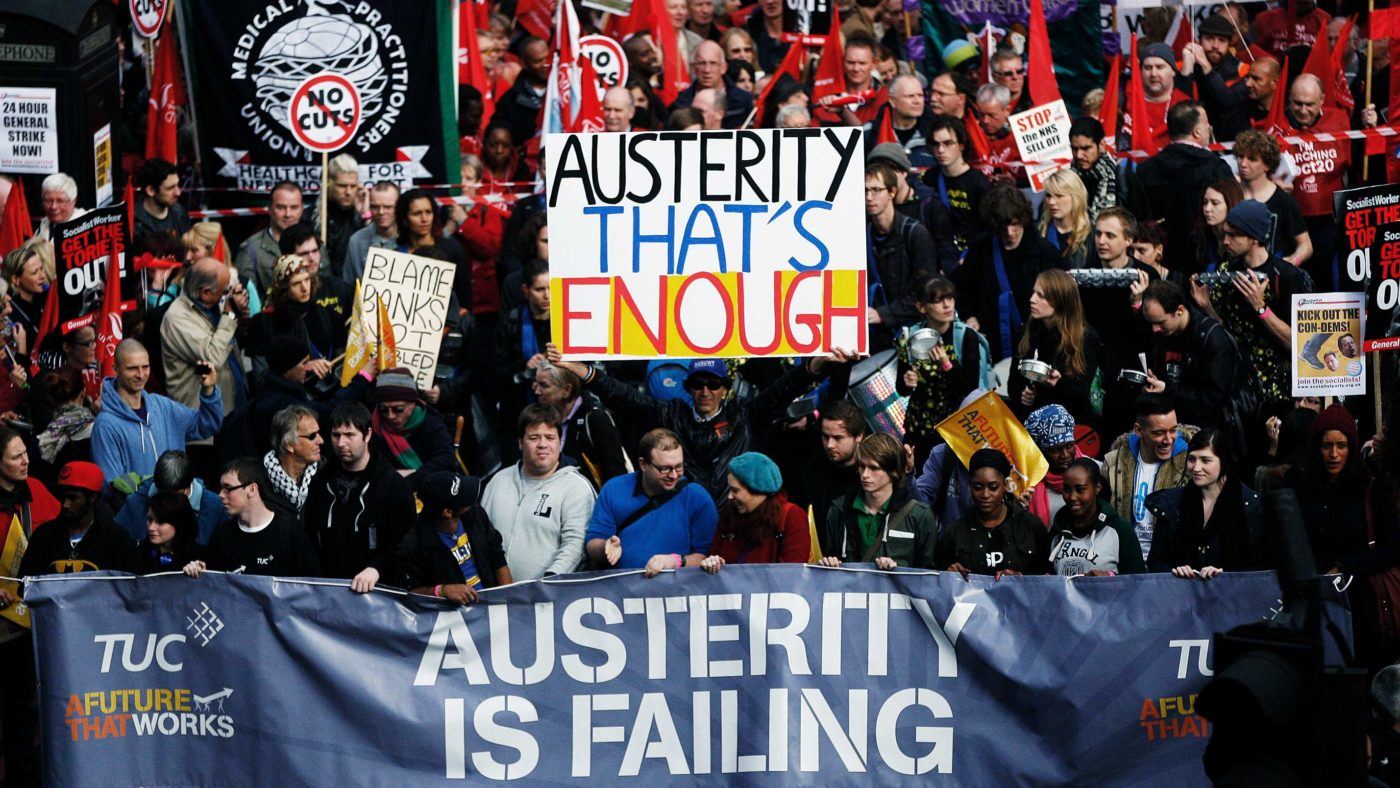The dominant theme of the political week here in Britain was austerity – or rather, the end of it. First, the Conservative Party’s deal with the DUP saw an extra billion lavished on Northern Ireland, and benefits for the wealthy elderly protected. Then there was the ungainly hokey-cokey over the public sector pay squeeze, in which minister after minister lined up to make the case for the poor benighted nurses/soldiers/teachers/firefighters who deserved just a little more cash – citing opinion polls showing that even Tory voters would like the wallet to be opened.
On cue, the latest edition of the British Social Attitudes survey suggested that after seven lean years, the public are rediscovering their love of tax and spend. It’s a political truism that the polls tend to move in tandem with economic realities: Theresa May, as many wise-after-the-event critics have pointed out, should have paid more attention to stagnant real wages when calling an election than her own soaring ratings. But, occasionally, they diverge. Ken Clarke put in the hard yards in rebuilding the economy pre-1997 – only to see Labour enjoying the years of plenty.
Today, we could be at an even more significant point of divergence. Because the public appetite for austerity is waning at precisely the point when it is most necessary – not just in Britain, but across the West.
It is true that the deficit in the public finances has narrowed substantially – although we are still spending some £54 billion more than is coming in. The economy is slowing (thanks either to Brexit or to a long overdue weakening of Britons’ addiction to credit, depending on who you ask). But it is still in relatively good shape. So as Kristian Niemitz pointed out on CapX recently, basic Keynesian logic would suggest that this is the time to build up our reserves in advance of any troubles that may lie ahead.
Instead, we have people calling for a spending splurge. John McDonnell wants to borrow £250 billion to fund Labour’s wish list (freebies and nationalisation, mostly). In America, Donald Trump is so attached to the idea of “priming the pump” that he has claimed authorship of the phrase. All those who told us that cutting spending should wait until the economy was growing again are now, as Sam Bowman of the Adam Smith Institute points out, mysteriously silent – or calling for it to rise regardless.
During the recession, many people said the time to do austerity was when the country was growing, not then. Where are they now?
— Sam Bowman ? (@s8mb) June 28, 2017
You don’t have to be Nostradamus to see the troubles that may lie ahead. Many Remainers – and even some Leavers – are convinced that Brexit will give the British economy a nasty knock. (If you were a multinational business, would you choose to channel your spending to a country that still doesn’t know what Brexit looks like, and might end up being run by Jeremy Corbyn?) The global debt mountain remains eye-wateringly vast. Central banks have, by keeping interest rates at rock bottom, not only inflated a giant asset bubble but left themselves with no room to manoeuvre if things turn sour.
And beyond that, the pressures on public spending – not just in the UK – are relentlessly upwards. Demography may not be destiny, but it’s certainly nine tenths of it. And the destiny of all Western nations (barring transformative reform of health and social care funding) is to have more people who need increasingly expensive support from the state, and comparatively fewer workers who can pay for it.
As one of my fellow journalists put it, the time to fix the roof is when the sun is shining. The sunshine today may not be terribly strong. But if we don’t follow his advice, we could end up getting absolutely drenched.
This article is taken from CapX’s Weekly Briefing email. Sign up here.


